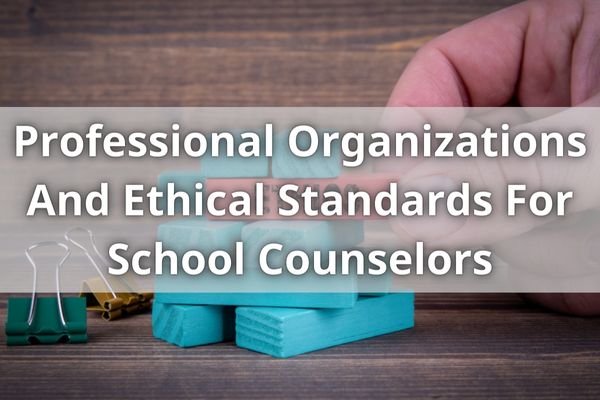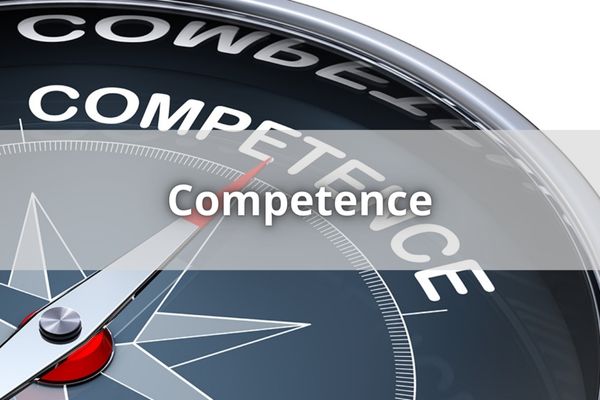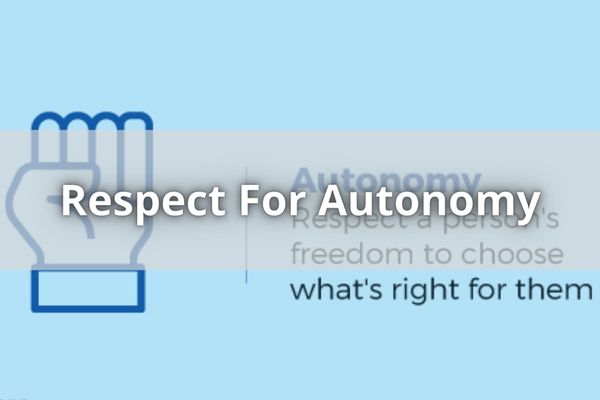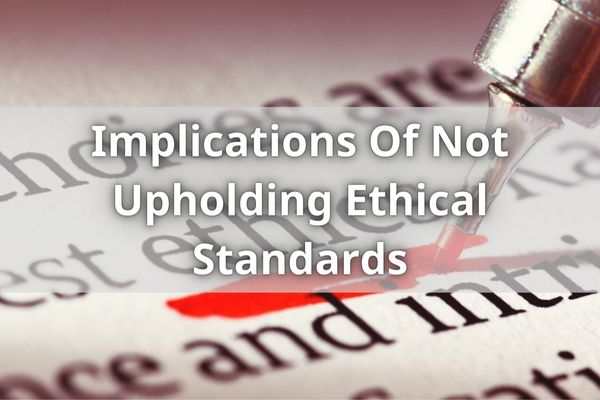School Counselor Ethical Standards: ASCA Ethical Guidelines
School Counselor Ethical Standards. Understanding and upholding the ethical standards established by professional associations and state licensing bodies is crucial for me as a school counselor. Knowing the consequences of not upholding these standards is also crucial.
I will go over the many ethical requirements that school counselors must follow in this essay, along with the repercussions of failing to do so.
Professional Organizations And Ethical Standards For School Counselors

You need to be aware of the school counseling professional organizations and their standards when working in this field as a school counselor. One such organization is the American School Counselor Association (ASCA). This organization provides guidance on ethical practices and best practices for school counselors.
The school counselor Code of Ethics outlines specific behaviors that are expected from school counselors, including maintaining confidentiality, following legal mandates, and avoiding dual relationships with students. This code ensures ethical behavior from those who work in this field.
Additionally, state licensing boards also provide guidance on appropriate conduct for school counselors. The role of the state licensing board is to establish regulations regarding licensure requirements and continuing education requirements for those pursuing a career as a school counselor.
Furthermore, it’s important that all practicing school counselors remain current with these regulations so they can continue to practice ethically. It’s also necessary for them to attend workshops and conferences focused on ethics to stay informed about any changes or updates within their profession’s ethical standards.
Finally, establishing relationships with other professionals in the field can help ensure that practitioners remain current with best ethical practices. Keeping up-to-date with trends in counseling techniques can be helpful too as they may lead to improved outcomes for students seeking counseling services.
Networking with other professionals can also be beneficial since it allows counselors an opportunity to learn from each other’s experiences and share ideas about how best to serve their students ethically and effectively while remaining compliant with all applicable laws and regulations set forth by the state licensing board or ASCA’s Code of Ethics.
The Role Of The State Licensing Board
Y’all need to be aware of the state licensing board’s role when it comes to professional practices. The State Licensing Board is responsible for setting and enforcing ethical standards within a particular profession, which includes school counselors across all states. Professionalism is highly valued by the State Licensing Board, and they will evaluate how each practitioner follows the guidelines of Legal and Ethical Standards as set out by ASCA Ethical Code of Conduct.
The State Licensing Board also plays an integral part in ensuring that school counselors are properly registered, licensed and qualified to practice their counseling profession in accordance with the relevant laws. They review complaints about unethical behavior or negligence on behalf of practitioners, conduct investigations into alleged violations and make decisions on sanctions to be taken against any individual found guilty of misconducts or negligent practices.
Therefore, it is essential that school counselors understand the evaluation regarding school counselors’ responsibilities to students and towards legal and ethical standards so as not to risk disciplinary action from the State Licensing Board. To ensure compliance with these standards, it is recommended that school counselors join Professional Organizations such as American School Counselor Association (ASCA) which provide support, guidance and resources related to ethical practice in counseling.
With this knowledge, school counselors can confidently navigate through state regulations while providing quality services safely for their clients. Thus, transitioning us into our next topic: The American School Counselor Association (ASCA).
The American School Counselor Association (ASCA)
Discover how the American School Counselor Association can help you stay up to date with professional and legal requirements in your line of work. The ASCA provides standards for ethical comprehensive school counseling programs and school counselor educators practice that all school counselors should abide by. This includes being aware of their professional responsibility to maintain confidentiality, respect diversity, support student development, promote academic success, and collaborate with other professionals in the field.
ASCA also offers resources such as webinars, continuing education opportunities, and access to a variety of journals that can be used to keep informed about recent developments in the profession. One key area where the ASCA steps in is setting expectations for ethical behavior. All community members and courts of justice must adhere to a code of ethics which outlines responsibilities related to maintaining confidentiality and avoiding harm or exploitation of clients or including students.
Further, it puts forth expectations for providing quality services without discrimination based on race/ethnicity, gender identity/expression sexual orientation among others. It is essential for counselors to stay knowledgeable about these guidelines so they are able to provide appropriate and effective services while adhering to laws and regulations set by states and districts across different regions.
ASCA provides an invaluable service by ensuring that school counselors remain accountable for their actions both ethically and professionally. With its broad range of resources available online as well as through conferences held throughout the year, there are ample opportunities available for counselors seeking guidance when it comes to ethical standards associated with their profession.
Knowing this ensures that counselors are upholding high standards when working with students each day allowing them to best serve their needs while staying mindful of legal compliance; transitioning attention now into exploring what types of confidentiality laws exist around school counselor-student relationships….
Confidentiality
Understand the laws surrounding confidentiality in counselor-student relationships and learn how to protect yourself and your students. It’s critical to respect the ethical standards of the American School Counselor Association (ASCA) and any other professional organizations to which you may join as a school counselor.
School counselors must always be aware of the legislation pertaining to confidentiality because it is one of the fundamental principles that must be upheld when delivering counseling services. The key elements include:
- Ethics: Professional ethics require counselors to keep information confidential, except in certain circumstances such as if there’s imminent danger or risk of harm.
- School Counselor Association: The ASCA has served as a guide for the ethical practices and maintaining confidentiality which must be followed by all certified counselors.
- Professional Association: Depending on their specialty, many counselors will also belong to other professional organizations who have their own codes of conduct regarding confidentiality.
- Law: Aside from professional ethical codes, some states also have specific laws about client privacy and record keeping that must be adhered to.
It’s important for school counselors not only to know what these rules are but also how they apply in practice. This means being aware of any potential conflicts between different sets of rules or regulations and making sure that student records are secure at all times.
Additionally, while talking with clients about potentially delicate subjects like mental health difficulties or drug misuse issues, counselors should be aware of any cultural sensitivities. School counselors may make sure they are in compliance with all applicable laws and regulations while providing their kids with high-quality treatment by adhering to these rules and maintaining current with changes in legislation or best practices.
With an understanding of confidentiality requirements firmly established, it’s time to focus on another core value for successful counseling – competence!
Competence

Competence is key when it comes to providing effective counseling, so make sure you have the skills and knowledge needed to provide quality care. The American School Counselor Association (ASCA) sets out a Code of Ethics for school counselors that outlines expectations for competency.
This includes staying up-to-date with professional development such as attending conferences and continuing education courses, maintaining appropriate boundaries with students, and adhering to the ASCA’s ethical principles. Additionally, counselors must be aware of their limitations when it comes to providing services and refer clients or peers to other professionals if needed.
Knowing one’s own area of expertise is important in providing the best care possible since each student has unique needs. If you are working with a student who is struggling academically due to depression or anxiety, you should be able to recognize this issue and work within your scope of practice by referring them to mental health resources if necessary. Similarly, you must adhere strictly to the ASCA’s Code of Ethics to ensure that your professional practice meets ethical standards and that your students are receiving quality care.
It is also essential for school counselors to respect diversity in all forms when interacting with students from different backgrounds or experiences. As a counselor, you should not only understand how cultural differences may impact a student’s experience but also actively strive towards creating an inclusive environment where all students feel respected regardless of their identity or background.
With this in mind, you can create an atmosphere that welcomes everyone regardless of race, gender identity/expression, religion etc., which will help foster trust between yourself as a counselor and your students.
Respect For Diversity
As a counselor, it’s essential for me to respect diversity in order to build trust with my students and create an inclusive environment. This means striving to understand the needs of informing all stakeholders in my school community and promoting equity and access.
To accomplish this, I make sure that diverse perspectives are present in decision-making processes. I also learn how different cultures communicate, think, interact, and behave. My counseling services are unbiased and respect cultural differences without judgement or assumptions about individual backgrounds or experiences. I refrain from stereotyping or generalizing groups of people when interacting with students or colleagues.
It’s critical for me to ensure that all students feel respected and accepted, regardless of their identity within my school community. This includes information on their gender, color, ethnicity, religion, sexual orientation, etc. Without worrying about bias or discrimination from me or other school personnel, students should be able to get the most out of their educational experience.
To do this successfully requires active effort on my part as a professional school counselor educator. I continually deepen my knowledge around diversity issues while being open-mindedly aware of the ever-changing climate surrounding these topics throughout society today. I strive to continually update my practice so that I may remain respectful and sensitive towards the varying needs of each student within our school population while still staying true to ethical standards governing this profession.
My goal is to better serve those under my care both now and into the future with full respect for autonomy at all times.
Respect For Autonomy

You can help your students make their own decisions with respect and autonomy by continually updating your practice to stay informed about the ever-changing landscape of diversity issues.
According to the Ethical Standards set forth by the American School Counselor Association, this principle of Respect for Autonomy is explicitly stated as part of the ethical practice for school counselors. This means that we must strive to honor our student’s right to self-determination, as well as foster an environment where they are able to make autonomous decisions without fear or hesitation.
Respect for Autonomy also requires us to give each student equal access and opportunity when making their choices, while honoring their individual rights and beliefs at all times.
We should also ensure that our students understand their choices in order for them to feel empowered enough to make autonomous decisions. It’s our job as school counselors to educate each student on all available options based on factual information and research, allowing them freedom of choice without any outside influence or pressure from others.
We should be mindful not only of what we say but how we say it, understanding that words can have a profound impact on someone’s ability – or inability – to act autonomously.
Our commitment and dedication towards helping our students become capable decision makers starts with respecting their autonomy in all possible ways. As school counselors, it’s important that we remain aware of any power dynamics within our relationships with students so that we don’t unintentionally limit their independence or deny them opportunities because of unequal access or resources.
With integrity in mind, let’s continue striving towards providing every student with an equitable chance at success in life through respecting everyone’s right to autonomy.
Integrity
With integrity as your guiding principle, you can ensure that you’re making ethical decisions in a fair and equitable manner. As a school counselor, this means adhering to the ethical codes of the American School Counselor Association (ASCA).
It also requires:
- An awareness of one’s own limitations
- A commitment to serve students in an impartial and unbiased way
- Adherence to professional standards set forth by ASCA
- Regular self-assessment to ensure compliance with ethical guidelines
By recognizing these responsibilities and adhering to their requirements, you can ensure that all of your interactions with students maintain a high level of integrity. This not only allows for more effective counseling services but also shows respect for yourself, colleagues, school administrators, parents/guardians, and most importantly – the students.
In turn, being aware and intentional about maintaining integrity will help build trust within the community and create an environment where all stakeholders feel safe, respected, and heard. Moving forward into developing an understanding of one’s own limitations is essential for successful decision-making.
Awareness Of Limitations
Making better selections will enable you to best serve your pupils and the community by being aware of your own limitations. It is crucial for school counselors to be aware of the moral norms that underpin their industry and to always work to uphold these high standards. The American School Counselor Association (ASCA) specifies several principles of ethical behavior necessary to maintain the high standards of integrity for counselors including self-awareness, which includes awareness of your limitations.
| Limitations | Benefits | Strategies |
| Knowledge | More informed decisions | Ongoing learning and training |
| Time | Reduce burnout & stress | Prioritize tasks & delegate where needed |
| Emotional Capacity | Remain open-minded & unbiased | Practice self care & take breaks when necessary |
Self-awareness is an important part of being a successful school counselor as it allows us to remain mindful and uphold our professional obligations while considering the best interests of our students. Recognizing our personal strengths and weaknesses helps us create strategies to manage any potential areas where we may lack experience or knowledge. This includes learning how to prioritize tasks, delegate responsibilities, practice self-care, seek out opportunities for further learning and training – all essential tools for ensuring success in this role.
By understanding our own limitations we are better able to provide quality services without becoming overwhelmed or burned out by the pressures associated with being a school counselor.
Advocacy And Social Justice In School Counseling
As a school counselor, you’re in a unique position to advocate for students and promote social justice within your community. Ethical behavior is essential when advocating for others, ensuring that boundaries are respected and everyone’s rights and values are upheld. Regular self-assessment of your own practices and seeking peer consultation can help ensure advocacy efforts remain rooted in ethical behavior and values-driven leadership and professionalism.
Recognize when students’ needs go beyond what you can provide as a school counselor. In these cases, it’s essential to connect them with appropriate resources and services outside of the school setting if possible. Not upholding ethical standards can have legal implications or harm those involved.
Advocacy should be seen as part of a larger effort towards promoting social justice both inside and outside the classroom. Engage with stakeholders such as parents, teachers, administrators, other service providers, and community members who have different perspectives on how best to support student success.
Through ethical behavior and value-based leadership approaches, school counselors can foster meaningful change within their schools and communities. It’s your responsibility to understand the implications of not upholding ethical standards, which should never be taken lightly or overlooked.
Implications Of Not Upholding Ethical Standards

Failing to adhere to ethical standards can have serious consequences, so it’s important to take them seriously. As a school counselor, I’m expected to maintain high standards of integrity and ethical behavior. If I fail to do so, there are several implications.
First, my professional reputation will be damaged. My peers may not trust me or take me seriously as a professional, which could make it difficult for me to engage in meaningful relationships with colleagues. Furthermore, if students become aware of any unethical behavior on my part, their confidence in me as their school counselor may be shaken. This could lead to an overall lack of trust between myself and the students I’m meant to counsel and support in their academic journey.
Another implication is that I might face disciplinary action from the school board or other governing bodies due to a breach in protocol or policy. In order for any profession – including that of a school counselor – to function properly, everyone must adhere strictly to established rules and regulations.
It’s also important for me as an individual practitioner within this field to assess my own actions against the code of ethics regularly through self-reflection and evaluation techniques such as journaling or self-assessment surveys. By doing so regularly, I can ensure that all counseling services provided by myself are diverse yet congruent with applicable laws and regulations at all times.
In addition, failing to uphold ethical standards can lead clients/students feeling betrayed after coming forward with sensitive information they thought was confidential but was later revealed without consent due to negligence on my part. This could cause irreparable harm both emotionally and physically among those who rely on these services; hence why maintaining ethical standards is essential when providing counseling services within the education system today.
Conclusion
Adhering to ethical standards is vital for school counselors. It’s not only important for providing the best care possible but also for protecting us from legal or professional consequences. Our commitment to the ethical standards set by state licensing boards and professional organizations helps maintain our integrity as professionals.
I’m proud to be part of a profession that values ethics and strives to promote social justice. With this in mind, I’ll strive each day to uphold these standards with every action and decision I make in my role as a school counselor.







